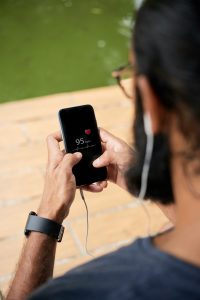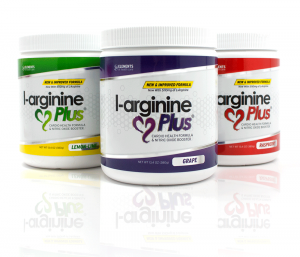If you want to know how your health is doing, can a simple at-home assessment help you know how healthy your heart is? Find out.
According to the U.S. Centers for Disease Control and Prevention (CDC), heart disease is the number one killer in the United States. Therefore, it’s essential that you take care of your heart. One of the first steps in taking care of your heart is knowing how your health is doing.
While we recommend getting regular checkups at your doctor’s, there are also some things you can do to monitor your heart health at home. The following are two simple things you can do to assess your heart health from the comfort of your home.
1. Take the Stairs
“If it takes you more than 1½ minutes to ascend four flights of stairs, your health is suboptimal, and it would be a good idea to consult a doctor,” says Dr. Jesús Peteiro, a cardiologist at University Hospital A Coruña, Spain. According to one of his studies, participants who took less time ascending the stairs had higher exercise capacity and a lower mortality rate.
2. Measure Your Heart Rate
 The reason your doctor usually checks your heart rate (pulse) during checkups is that it’s a basic measurement of your heart health. It typically changes throughout the day and is affected by physical exertion, moments of high stress, and more. At home, you can measure your resting heart rate and maximum heart rate.
The reason your doctor usually checks your heart rate (pulse) during checkups is that it’s a basic measurement of your heart health. It typically changes throughout the day and is affected by physical exertion, moments of high stress, and more. At home, you can measure your resting heart rate and maximum heart rate.
Your resting heart rate refers to your pulse during moments of relaxation and stillness. Generally, healthy adults will have a resting heart rate that ranges from 60 to 100 beats per minute (bpm). Age also affects it, with the range of your target resting heart rate usually getting lower as you get older.
On the other hand, your maximum heart rate refers to the highest that your heart rate should ever go. While a lower resting heart rate is usually good, the same can’t be said for your maximum heart rate. According to the CDC, you should aim to get between 64% and 75% of your maximum heart rate during moderate-intensity physical exercise.
To measure your heart rate at home, you can check the pulse on your wrist. Just put your index and middle finger on the inside of your wrist and count how many heartbeats you have in 15 seconds. Then multiply that by four to get your heart rate in bpm. The best time to measure your resting heart rate is in the morning while you’re still in bed and for maximum heart rate, you’ll have to pause briefly during exercise to measure it (or wear a fitness tracker).
Preventing Heart Disease
 Knowing how your heart health is doing is the first step in preventing heart disease. You should also be aware of the various signs and symptoms of heart disease like chest pain, shortness of breath, lightheadedness, and more.
Knowing how your heart health is doing is the first step in preventing heart disease. You should also be aware of the various signs and symptoms of heart disease like chest pain, shortness of breath, lightheadedness, and more.
The best thing you can do to prevent heart disease is to lead a healthy lifestyle by exercising regularly and eating a heart-healthy diet. You can also take supplements like L-arginine Plus for an extra boost. Its ingredients promote circulation, blood pressure, cholesterol, and more. Give your heart the support it deserves by knowing how your heart is doing, practicing healthy habits, and taking L-arginine Plus.

